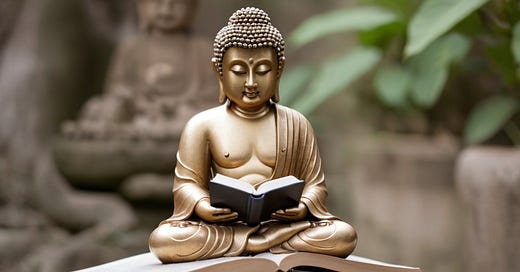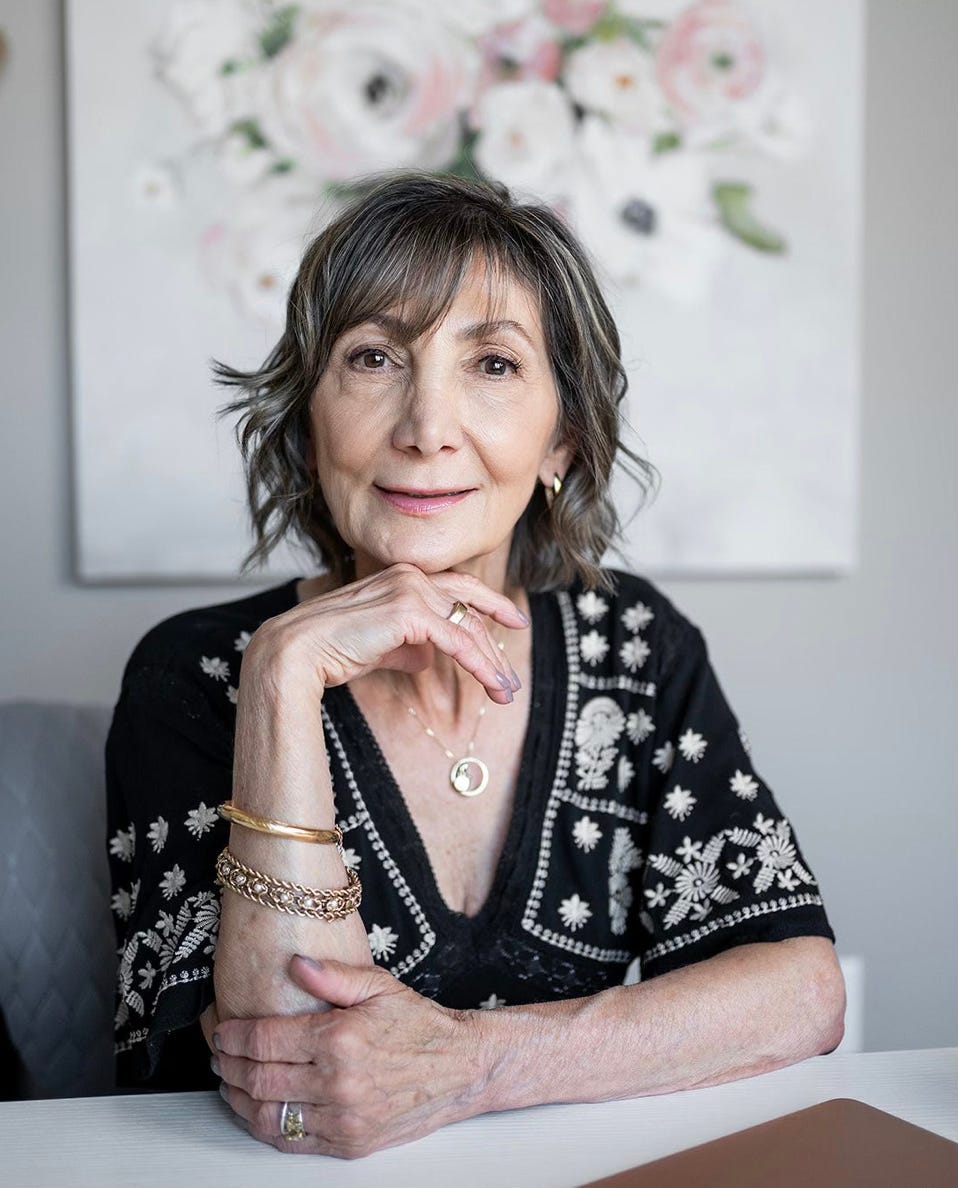Discovering Mindful Writers: Paulette Bodeman
Wisdom and reflections from Paulette's writing journey
Welcome to the November “Discovering Mindful Writers Q&A”. Each month, a guest writer answers the same seven questions about their writing life.
I am delighted to welcome this month. Paulette writes Because Life is Messy, where she find the moments of gold in our messy human lives. She’s the author of the memoir, The BreakAway Girl: Secrets of a Tantric Yogi, and a Transpersonal Psychology B.A. - Certified Coach
I hope you enjoy her answers to my questions. I love what she says about mindful writing tugging on the connective tissue of human existence. If you’re a regular reader you’ll know that I believe we can change the world with our words!
What do you think about the responses Paulette has given? Do let us know in the comments.
With love,
What does mindful writing mean to you?
Mindful writing is an invitation to express what is. No matter the genre—literature, science fiction, non-fiction, memoir, or poetry—mindful writing touches people. There’s a resonance. The words and the content are expressed with radical honesty. Though authenticity is a bit overused, mindful writing is authentic—legitimate and trustworthy and touches the reader universally and personally. Mindful writing tugs on the connective tissue of human existence.
How does a mindful writing practice fit into your wider mindfulness journey?
Writing is an essential aspect of my mindfulness journey. It brings me closer to myself. At the same time, mindful writing requires me to consider what’s happening externally in our world. It asks me to pay close attention to life. When I write, intending to embrace the paradox of being human, it also extends my mindfulness practice.
What do you write? Essays, poetry, fiction, plays?
I’ve written a memoir titled The BreakAway Girl - Secrets of a Tantric Yogi, which I describe as a memoir in fragments threaded with non-dual spiritual teachings. Readers have asked me to write a part 2, which I’m considering. Currently, I mostly write creative non-fiction essays. I love poetry as it requires something different from the poet and the reader. Poetry informs my writing, and although I admire poets, I don’t consider myself a poet. I do write Hailu, a form of poetry. I tend to be effusive in my writing, so Haiku is a great discipline. It helps me get to the essence of what I’m trying to convey. It’s pure. And another form of my mindfulness practice.
What drives you to write?
I believe we all come into this world with a drive for creative self-expression. We each must find what that means for us through trial and error. Writing is the way I make sense of the world. It’s not a choice; it’s an extension of who I am. I can’t not write. Writing helps me make meaning of life. In my own small, humble way, it’s also an invitation for the reader to do the same.
What stops you from writing?
Distraction! Western culture is overstimulated and inundated with seductive ways that throw us off our centers and that market to our exhausted bodies and brains. If I allow myself to fall into that rabbit hole, I may get depressed or anxious and stop writing.
What do you aspire to achieve with your writing?
As I mentioned, I write to make sense of the world around me. But I also write to connect with others and entertain, educate, and inspire my readers. I hope to foster the importance of mutual empowerment and the value of recognizing our interconnectedness. And again, humbly, to offer what I’ve learned as guidance to the next generation who might be searching for their place in the world.
I wrote this Haiku years ago in response to a question at a training I was attending. It feels fitting now, too, in response to your question.
Seeds of love we plant
It is the highest teaching
From the muck we bloom.
How do you write? Are you a planner or do you just start writing from an idea and let it lead you?
It depends, and I’m both. I’m not a writer who plans weeks and months ahead. Although yes, I carefully planned my book. I schedule and plan when writing a series of essays on a particular topic. Though not always, I usually write in the morning after my practices, like meditation, walking, and yoga. But I also write when an idea that either consciously or subconsciously has been working me, and suddenly it begins to take shape. I’m compelled to sit down and invite the words to flow. That feeling of magic doesn’t always happen - as if you’re being downloaded. So, when it does, I let it roll and embrace the gift.
Thanks so much for your time and sharing your insights and inspirations, Paulette.
Next month’s guest is who writes Tales of a Wayward Yogini.
Read previous interviews in the series here.
Thank you for reading The Mindful Writer. If you enjoy my posts and would like to commit to a slower, more mindful writing practice, please consider becoming a supporter for only £5 a month. You’ll get a Mindful Writing Ebook, monthly Zoom Mindful Writing Marathons, and private chats with me and the other mindful writers in the community.
Alternatively, a one-time donation will help me continue the hard work behind bringing these posts to you. Buy me a cup of tea.










This is lovely! I’ve found writing to be an essential part of my mindfulness path as well. Thank you for sharing your mindfulness through writing journey with us. 💖
I love that image!